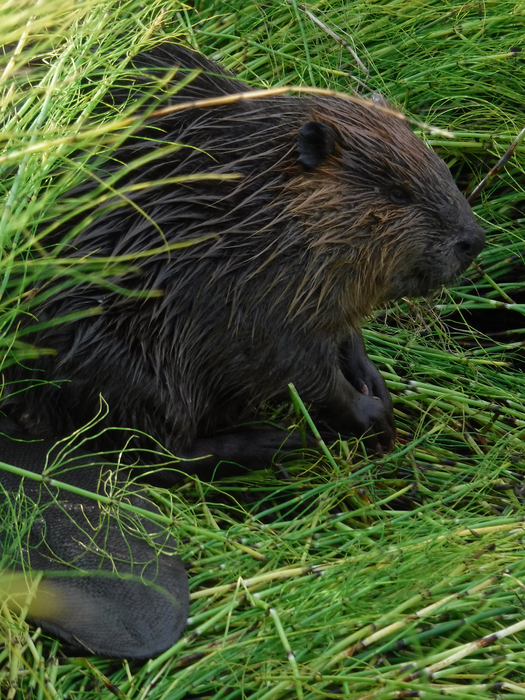Anglia Ruskin University (ARU) in Cambridge, England, has received funding of over half a million pounds to lead a major new study to investigate the impact of beavers as they spread northwards into the Arctic.

Credit: Photo by Dr Helen Wheeler of Anglia Ruskin University
Anglia Ruskin University (ARU) in Cambridge, England, has received funding of over half a million pounds to lead a major new study to investigate the impact of beavers as they spread northwards into the Arctic.
The North American beaver (Castor canadensis) has been expanding its range in recent decades and this important research aims to understand the effects that beavers are having on the Arctic landscape, on other animals, and on local Indigenous communities.
The UK part of the three-year project is being led by Principal Investigator Dr Helen Wheeler and will build on research currently being carried out by ARU in the Gwich’in Settlement Region in Canada’s Northwest Territories, examining how beavers are changing local ecosystems.
The new study, which begins this month, will focus on an area even further north, in Canada’s Inuvialuit Settlement Region. ARU has received £553,491 from UK Research and Innovation (UKRI) and will be working alongside Wilfrid Laurier University of Canada and the Inuvialuit Fisheries Joint Management Committee. ARU’s Canadian partners are being funded by Polar Knowledge Canada and Fonds de recherche du Québec, and Professor Philip Marsh of Wilfrid Laurier University is the Principal Investigator for the Canadian partners.
A key question for the Inuvialuit Settlement Region, and beyond, is the extent, scope and interlinkages between ecological and sociological changes that take place as beaver numbers increase. The impact of beavers can cascade down ecological systems, causing major transformations known as regime shifts.
Through dam building, beavers are capable of changing landscapes by creating ponds and diverting rivers, leading to a reduction in fish populations that are relied upon by local communities.
As beaver numbers increase north of the treeline and into the Arctic, ponds created by beavers are also causing permafrost to melt, which can lead to the release of the greenhouse gases methane and carbon dioxide.
In collaboration with the Inuvialuit Fisheries Joint Management Committee, this new project will examine precisely how the presence of beavers affects stream and lake characteristics, fish populations, and local communities.
Dr Helen Wheeler, Senior Lecturer in Zoology at Anglia Ruskin University (ARU), said: “We are delighted to receive this funding from UK Research and Innovation as this project will allow us to work closely with the Inuvialuit Fisheries Joint Management Committee and members of the Inuvialuit community to address an important environmental change that is causing a great deal of concern in the area.
“Thanks to the scale of the project and the funding we have received, we will be able to investigate the complex effects of rapid environmental change in a truly interdisciplinary way, bringing together experts in wildlife change, hydrology, biogeochemistry, ecosystem and fish ecology, and human wellbeing, and I’m really looking forward to carrying out fieldwork in the region this summer.
“What is especially pleasing is that this project is working closely with Inuvialuit partners and community members, and together we will be creating tools and infrastructure that will exist way beyond the life of the project. This will allow locally led monitoring and research to continue in the region long term, providing the Inuvialuit with the scientific data on the changes created by beavers that is necessary to help inform their ongoing stewardship of the land.”
Ends




